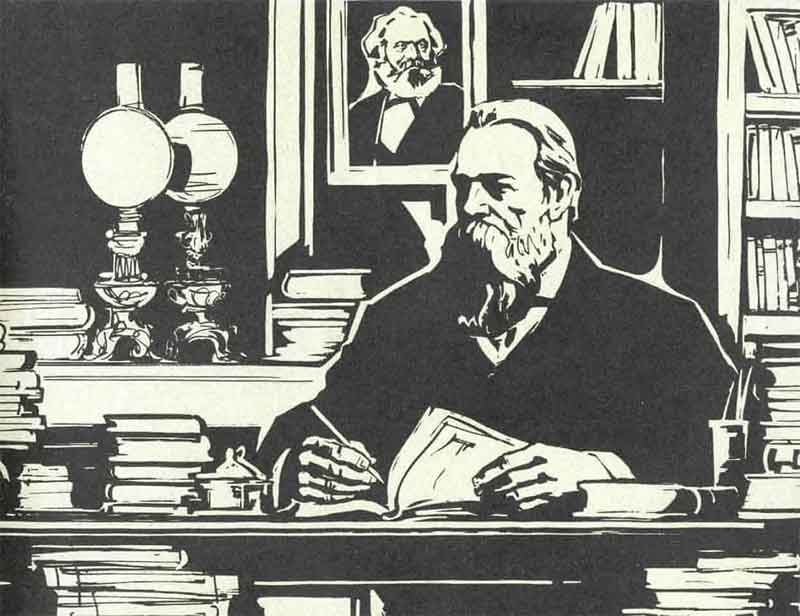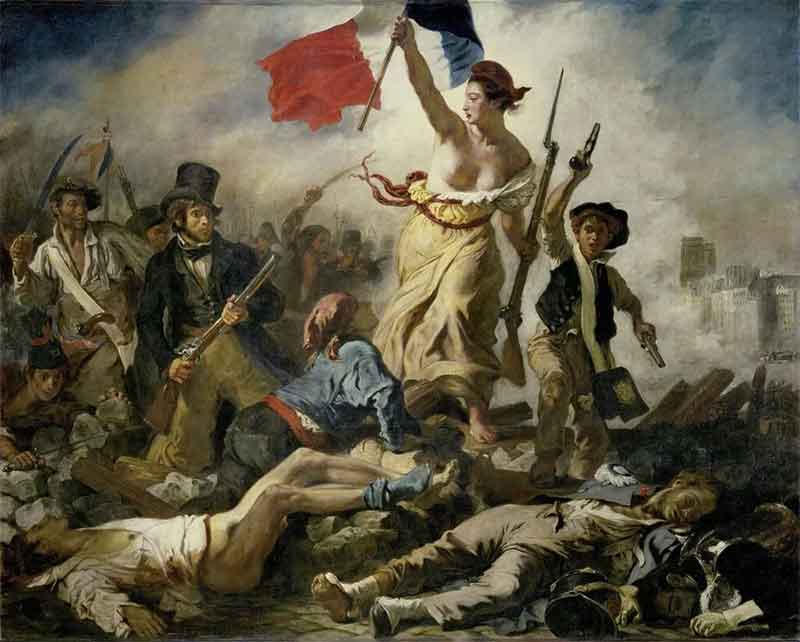
Quotes from Karl Marx’s works reverberated in the unprecedented 5-day long conference organized by the Asian Development and Research Institute (ADRI), participated by the delegates from 18 countries across the 5 oceans, held in Patna, the capital of Bihar that has witnessed many revolutionary and counter revolutionary movements and uprisings. Gist and the central message of the conference in one sentence can be expressed in the form the well-known Marxist maxim;Marxism is a dynamic science to comprehend the world and revolutionary ideology of class struggle to change it. Beginning with the keynote address by ‘Lord’ Meghnad Desai, chairman, the academic Advisory committee of the Conference and ending with the valedictory address by Samuel Hollander Professor, Emeritus, Toronto University, the conference vividly discoursed various aspects of Marx; Marxism and its applications, via 38 lectures by eminent academicians and scholars and 17 scholarly papers, spread over 5 days (16-20 June, 2018). Holding a 5 day long conference to commemorate Karl Marx’s 200th anniversary was a historic, event, given the hostile neo-liberal milieu, in which the neo-liberal bards are composing the songs of end of history and the end of Marxism. Organizers do deserve the congratulation; complement and appreciation for conducting it with incisive precision. Marxism is an idea of human emancipation and shall remain relevant till then – till the end of class conflict with the establishment dictatorship of proletariat as the instrument of creating conducive conditions for the withering away of the State.
50 years ago in 1967, a national seminar was organized in BeguSarai, a district town in Bihar, on the initiative of Marxist activists Dr. Pijushendu Gupta and Professor Radha Krishna Choudhary to mark the 150th anniversary of Karl Marx and centenary of the publication of Capital. As claimed in the broacher of the conference: “The present conference at Patna on the bicentenary of Karl Marx is a tribute to the organizers of that memorable initiative, and can be considered as a sequel to that sesquicentennial event, albeit in a very much changed global and local scenario”. In general, conference expressed concerns over crisis of theory in the changed global scenario not only in capitalism but also in socialism in the present context, when the reactionary forces are aggressively vocal. It was a historic event not only in terms of span and participants of various national-international experiences and reputed academics, but also in terms of kaleidoscopic canvas of themes and approaches. Various well known and not so well known scholars discussed various aspects of Marxism – Marxian economics from neo-liberal viewpoint; history of ‘Capital’; theory of centralization; Marxism and the Indian context so on and so forth.There is no scope for going into any details of the lectures or papers but the conference is also historic in that it provided a platform for various perspectives on Marxist theory and critiques of its practices, it did not address the question, “what is to be done?”, probably waiting for some Lenin. It ‘interpreted the world in various ways’, but did not adequately address the question of ‘changing it.” As I say it as a participant in the conference, who presented a critique of the application of Marxism in Indian communist movement, it should not be taken as a criticism of the conference or those who envisioned and successfully implemented this program, but a self-criticism, one of the key concept of Marxism, which the leaders of the communist parties have kept in an indefinite abeyance. Eric Hobsbawm had asked the leaders of Communist Parties to read Marx.
Neo-liberal capitalism is going through not only economic crisis but also the crisis of theory. Its only viable alternative, the socialism too is undergoing not only political crisis of marginalization but also the crisis of theory.The evolution of theoretical and pragmatic Marxism has gone through immense internal stress, encountered multiple contradictions and faced various questions, the answers of which it has failed to provide, or it has simply reduced them into black and white categories, in a way, the international Communist movement witnessed many tragic situations when history overtook them with an unimaginable pace and “official” revolutionaries sought immediate, and almost un-Marxian answers to highly complex situations. In such a situation notwithstanding the lack of restlessness at the alarming situation of rightist onslaught against the workers and other oppressed section; rise of racist and communal fascism, debate on Marx and various aspects of Marxism is a welcome sign. On the question of racism I am reminded of the young delegate, Jared, an Afro-American, PhD candidateat Brown University (USA). He was incisively articulate and assertively confident in his application of Marxist theory of value in analyzing Martin Luther King’s call of “revolution of values”, but was intensely apprehensive of getting a college or university job for being a black, in private conversation. Capitalism has theoretically abolished the birth qualification but in practice it very much prevails. Contradiction of theory and practice is immanently innate attribute of all class societies; capitalism being the most advanced class society, the duality is at highest. ProfessorKipton Jensen, in his presentation, ‘History of Black Marxism in the USA’ traces the reception history of Marxism, primarily among African Americans. Similarly in India too, theoretically casteism is abolished but remains as a major false social-consciousness to obfuscate the major economic (class) contradiction, as pointed out by this author in his presentation, ‘Marxism and the Indian Context.
All the lecture-sessions were named after prominent, historic intellectual/political leaders including Adam Smith and Ricardo, the classical political economists, whose works are among the reference points for Marx’s critique of political economy. In the galaxy of names of prominent Marxist intellectuals and activists after whom the sessions were named, Mao Zedong’s name was conspicuously missing along with that of Joseph Stalin. Most of the lectures and the papers focused on their particular areas of research and an analytical collage of them would be a panoramic and kaleidoscopic collection of varied interpretations and applications of Marxism to analyze various issues. That is why Marxism is dynamic science, a paradigm of social analysis with flexible boundaries, like Newtonian paradigm in Physics that was quashed by Einstein. Seeing the vibrant debate among the Marxists and scholars of Marxism regarding application of Marxist principles to various circumstances like this mega conference at Patna, I feel that for a long time to come the paradigm and perspectives shall be enriched by new researches and movements within the paradigm, instead of its being quashed.
It is out of scope and unnecessary to go into details of each lecture and paper presentation beginning with the Karl Marx Memorial inaugural lecture speculating the future of globalization on the basis of historical experiences followed by suggestions of correcting the misinterpretations of Marxism by revisiting classics; search for normative elements in Marxism or discussion on David Harvey’s concept of Accumulation by Dispossession and the neo-liberal so-called primitive accumulation; critiques of various philosophical trends and of historical application of Marxist principles in particular contexts; structural ruptures and deconstruction; scholarly presentations on various aspects of Marx’s life and works and so on, but no one raised the question or the issue of crisis in socialism in terms of ability to theorize the character of the neo-liberal capital and changes it brought about into super-structural institutions and social values. Also the causes of marginalization the communist parties world over, were left untouched. In my paper ‘Marxism and the Indian Context, I underlined the need for dialectical unity of struggles for social and economic justices as they mostly are concurrent but as yet I have no theory about it. Nevertheless a mega event involving so many academic celebrities discussing and debating Marx in Bihar on his bicentenary in the era of social reaction, is inspiring and authenticates the all-time importance of Marxism. Marx wrote in Eighteenth Brumaire of Louis Bonaparte (1851-52), that men make their own history but not the way they please or the circumstances chosen by them but in the given and transmitted from the past with all its cultural-intellectual baggage. Marx and Engels have repeatedly emphasized the emancipation of the oppressed (the working class) by the oppressed itself that it could do only by acquiring class conscious against the social consciousness shaped by the ruling class ideas and organize itself as class for itself. The most important link between ‘class-in-itself’ and ‘class-for-itself’ is the class-consciousness, which I call the radicalization of social consciousness; pre-condition is emancipation of workers from the super-structural false consciousness.
To conclude, this gathering was an attempt to rejuvenate the interest in the discourse of class-struggle politics and an attempt towards radicalization of the social consciousness. It was, in my opinion, a conference of scholars of Marxism who interpret the world and not the Marxists, who apply the interpretation to change it too, as Engels had said that a Marxist is not one who quotes from Marx or his work, but one who reacts in a particular situation as Marx would have. It would not be inappropriate to conclude it by a quotation from AK Gopalan’sIn the Cause of the People, which came to mind every morning seeing the people sleeping on the pavements, on their carts or Rickshaws, after coming out of the air-conditioned venue and lodging.
“A new life, a new environment, a new alliance – I found myself in an environment calculated to ruin a man. First class travel, comfortable chambers in the parliament, a surfeit of money, magnificent quarters – and a life devoid of heavy responsibility.All circumstances favorable to a life of pleasure. The overall framework was such that we did not feel hopeful about this much eulogized parliamentary democracy.”[1]The need of the hour is that the revolutionary ideas should reach the people so that they rise in revolt for their emancipation.
[1] AK Gopalan, In the Causeof the People, Orientlongman, New Delhi, 1972, pp. 181-82
Ish Mishra , Associate Professor, Dept. of Political Science, Hindu College, University of Delhi















































